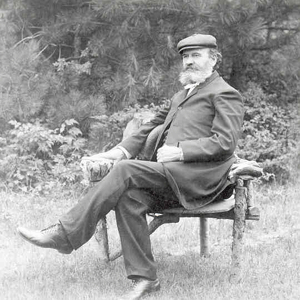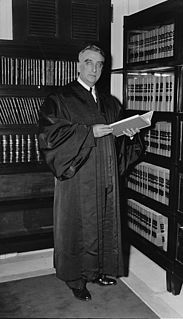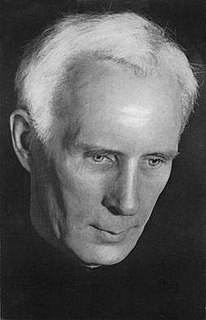A Quote by Francis Schaeffer
Technologically, modern man does everything he can do-he functions on this single boundary principle. Modern man, seeing himself as autonomous, with no personal-infinite God who has spoken, has no adequate universal to supply an adequate second boundary condition; and man being fallen is not only finite, but sinful. Thus man's pragmatically made choices have no reference point beyond human egotism. It is dog eat dog, man eat man, man eat nature.
Related Quotes
If a dog is biting a black man, the black man should kill the dog, whether the dog is a police dog or a hound dog or any kind of dog. If a dog is fixed on a black man when that black man is doing nothing but trying to take advantage of what the government says is supposed to be his, then that black man should kill that dog or any two-legged dog who sets the dog on him.
By His gracious condescension God became man and is called man for the sake of man and by exchanging His condition for ours revealed the power that elevates man to God through his love for God and brings God down to man because of His love for man. By this blessed inversion, man is made God by divinization and God is made man by hominization. For the Word of God and God wills always and in all things to accomplish the mystery of His embodiment.
It appears to Nietzsche that the modern age has produced for imitation three types of man ... First, Rousseau's man, the Titan who raises himself ... and in his need calls upon holy nature. Then Goethe's man ... a spectator of the world ... Third Schopenhauer's man ... voluntarily takes upon himself the pain of telling the truth.
Solitude is the profoundest fact of the human condition. Man is the only being who knows he is alone, and the only one who seeks out another. His nature - if that word can be used in reference to man, who has ‘invented’ himself by saying ‘no’ to nature - consists in his longing to realize himself in another. Man is nostalgia and a search for communion. Therefore, when he is aware of himself he is aware of his lack of another, that is, of his solitude.
Man is a fallen star till he is right with heaven: he is out of order with himself and all around him till he occupies his true place in relation to God. When he serves God, he has reached that point where he doth serve himself best, and enjoys himself most. It is man's honour, it is man's joy, it is man's heaven, to live unto God.
When I say "The good man gave his good dog a good meal," I use "good" analogically, for there is at the same time a similarity and a difference between a good man, a good dog, and a good meal. All three are desirable, but a good man is wise and moral, a good dog is tame and affectionate, and a good meal is tasty and nourishing. But a good man is not tasty and nourishing, except to a cannibal; a good dog is not wise and moral, except in cartoons, and a good meal is not tame and affectionate, unless it's alive as you eat it.
There are three kinds of nature in man, as Nicetas Stethatos further explains: the carnal man, who wants to live for his own pleasure, even if it harms others; the natural man, who wants to please both himself and others; and the spiritual man, who wants to please only God, even if it harms himself. The first is lower than human nature, the second is normal, the third is above nature; it is life in Christ.






































